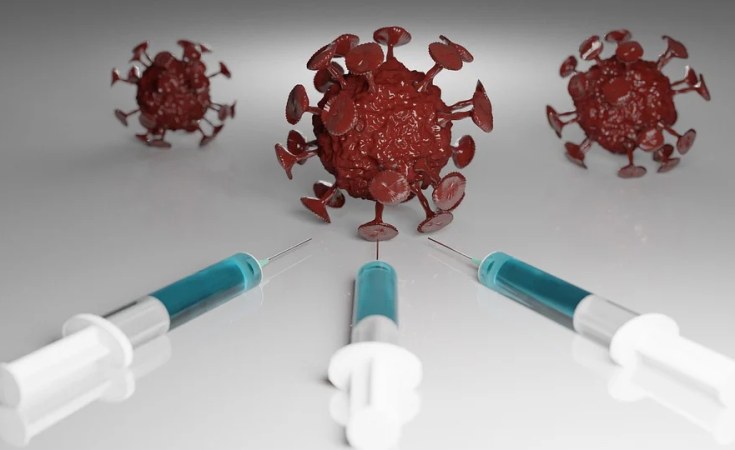 By Martina Schwikowski
By Martina Schwikowski
President Samia Suluhu Hassan has belatedly kicked off Tanzania's COVID-19 vaccination campaign. But the East Africa country still has a long path ahead if it wants beat the coronavirus.
The launching of Tanzania's belated vaccination campaign is the most decisive signal yet of
President Samia Suluhu Hassan's break from the coronavirus policies of her late predecessor, John Magufuli.Magufuli, who died in March, was a devout Christian and a coronavirus skeptic. Saying God would protect his people, he championed prayers over face masks and home remedies such as steam inhalations over vaccines.
In her new strategy to prevent infection with the virus, President Hassan took pains to emphasize the vaccine's safety.
"I have come out to show the public who look up to me, and fully cognizant that as a president I am the shepherd to many whom I lead," Hassan said, after receiving the single-shot Johnson & Johnson vaccine on Wednesday.
"So I wouldn't risk my life by taking this vaccine, I have agreed on my own volition to be vaccinated knowing in any case I have been living with many other vaccines in my body for the last 61 years now," she said during the event, which was broadcast live on television.
The start of the vaccination campaign comes as Tanzania possibly faces a third coronavirus wave.
From COVID denier to vaccine embracer
The government recently warned of rising case numbers but it is unclear how widespread infections are.
In May this year, the government, under Hassan's leadership, started collecting COVID-19 data for the first time since April 2020 but it is not yet publishing daily infection rates.
Tanzania faces an enormous challenge because of Magufuli's initial failure to deal with the coronavirus, warns Africa expert Robert Kappel.
But the new leadership alerting the population to the dangers of the coronavirus is a major turn around, he told DW in a phone interview.
Magufuli "completely ignored the problem and acted quite idiosyncratically, hushing up up the topic of COVID in the country," Kappel said. In contrast, "Hassan is warning of the danger of a major crisis."
In another sign Hassan is gradually bringing Tanzania in line with global public health standards for tackling COVID-19, her government also recently stressed the importance of wearing face masks and social distancing.
Magufuli often railed against such measures.
According to the President of Tanzania's Medical Association, Shadrack Schorck, Tanzanians are still "divided" over the government's about face.
Some support former president Magufuli's views about the virus while others are welcoming the U-turn of the new government, Schorck told DW.
Too little, too late?
Speaking on Wednesday, President Hassan promised that Tanzania would have enough vaccines to inoculate all those willing to get the jab.
Plans are under way to procure doses from Pfizer/BioNTech, Moderna and Chinese vaccine makers Sinovac and Sinopharm, her government has said.
Hassan, however, made no reference to when these vaccines would arrive.
Tanzania didn't join the COVAX vaccine initiative until June, four months after COVAX started shipping free vaccines to those who signed up.
The late move makes Tanzania one of the of the last countries on the African continent to sign up for free vaccines.
"There are hardly any vaccines on offer at the moment. This is a very big problem, a kind of balancing act for the new president. In this regard, it is very difficult [for the government] to make a complete change now," Africa expert Kappel said.
So far, the country with a population of 62 million has only received 1 million doses of the Johnson & Johnson vaccine, which were donated by the United States and arrived on July 24.
"This will not be the last vaccine that comes from the United States," the US Ambassador to Tanzania, Donald J. Wright, told the Associated Press (AP) news agency.
"President Biden has committed to making 500 million doses of the vaccine available to the global community and [some of] those will be coming in various tranches to Tanzania," he said.
Sign up for free AllAfrica Newsletters
Get the latest in African news delivered straight to your inbox
Defeating vaccine skepticism
But procuring enough vaccines is only half the battle.
The government also needs to quickly convince "clear people's doubt towards vaccines," said Medical Association President Shadrack Schorck.
People are confused and need to learn more about how the vaccines are used, he said.
At the campaign launch, Health Minister Dorothy Gwajima announced the roll out of a comprehensive public education campaign to counter vaccine misinformation.
Vaccine skepticism among Tanzania's general population is thought to be high.
"Why don't we consider our traditional solutions? Why do we have to use foreign medicine? Is there something that is hidden here?" one resident of the commercial capital Dar es Salaam, Kelvin Mmari, asked AP, adding that he wasn't willing to be vaccinated.
Date 29.07.2021
Author Martina Schwikowski

No comments:
Post a Comment